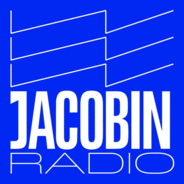There have been many moments of labor upsurge in America: the influx of members into the Knights of Labor in 1886, the dramatic growth of unions during and after World War I, and the great wave of public sector unionism in the 1960s and ‘70s. But none matches the period of the 1930s and ‘40s, when millions of workers unionized under the aegis of the great labor federation, the Congress of Industrial Organizations, or CIO. If we’re looking to get millions of private-sector workers into the labor movement today, there’s no better example than the ascendant period of the CIO.
In Organize the Unorganized, a podcast produced by the Center for Work & Democracy at Arizona State University and Jacobin, author Benjamin Y. Fong tells the story of the CIO with the help of prominent labor historians, including Nelson Lichtenstein, Dorothy Sue Cobble, Steve Fraser, Erik Loomis, Jeremy Brecher, Robert Cherny, Lizabeth Cohen, David Brody, Melvyn Dubofsky, and others. The multi-part series begins with a short history of the organization from which the CIO broke off, the American Federation of Labor, and explores central causes for the CIO’s founding: the broken promises of welfare capitalism, the National Industrial Recovery Act, and the mass strikes of 1934.
Organize the Unorganized will be available weekly here on Jacobin Radio starting January 9. Subscribe and join us as we explore the rise, importance, and legacy of this crucial labor federation.

Politik
Jacobin Radio Folgen
News, politics, history and more from Jacobin. Featuring The Dig, Long Reads, Confronting Capitalism, Behind the News, Jacobin Radio with Suzi Weissman, and occasional specials.
Folgen von Jacobin Radio
1766 Folgen
-
Folge vom 02.01.2024Introducing... Organize the Unorganized
-
Folge vom 29.12.2023Jacobin Radio: Grassroots Democracy in Latin America w/ Gabriel HetlandGabriel Hetland has just published his study of populist experiments in Venezuela and Bolivia, Democracy on the Ground, showing the complexity of implementing participatory democracy at the grassroots level. Suzi talks to him about his findings. He examines the possibilities, limits, and concrete cases of participatory democracy, including participatory budgeting at the local level during the highpoint of Latin America’s Left Turn in the 2010s. Hetland's study immediately begs the question: what kind of democracy? It’s a pertinent question here in the US, where democracy is under threat.Jacobin Radio with Suzi Weissman features conversations with leading thinkers and activists, with a focus on labor, the economy, and protest movements.
-
Folge vom 23.12.2023Dig: Age of Coexistence w/ Ussama MakdisiFeaturing Ussama Makdisi on the late Ottoman Empire's Arab culture of Muslim, Christian, and Jewish coexistence—an ecumenical frame that was interrupted by European colonialism and Zionism, which exacerbated and exploited sectarianism. This is the first of a two-part interview. Support The Dig at Patreon.com/TheDig Check out our newsletter and vast archives at thedigradio.com Shop Haymarket's ALL 40% off Holiday sale at haymarketbooks.org Buy Let Them Eat Crypto at plutobooks.com
-
Folge vom 23.12.2023Michael and Us: Gun KataIf society outlawed emotions, could we stop all war and conflict? This is the very, very stupid question at the heart of EQUILIBRIUM (2002), the dystopian extravaganza that introduced the world to the art of "gun kata."Michael and Us is a podcast about political cinema and our crumbling world hosted by Will Sloan and Luke Savage.
